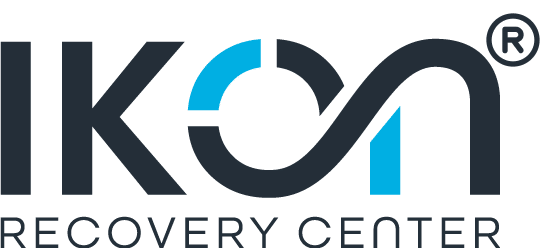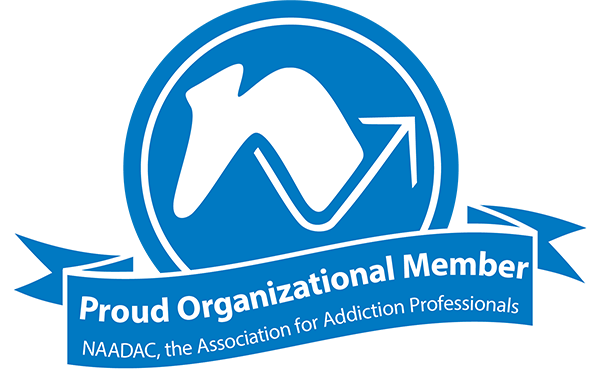Recovery
Table of Contents
Exercise can cut relapse rates by up to 50% and improve mental and physical health during addiction recovery.[1] It boosts brain chemicals like dopamine and endorphins, reducing cravings and providing a natural alternative to substance-induced highs. Here’s what exercise can do for your recovery:
- Reduce Stress and Anxiety: Releases endorphins and serotonin, improving mood and emotional balance.
- Improve Mental Health: Replenishes brain chemicals, lowering depression risk by 26%.
- Enhance Sleep Quality: Regulates sleep cycles and eases insomnia symptoms.
- Build Confidence: Achieve fitness milestones to boost self-esteem and resilience.
- Create Social Connections: Group fitness fosters accountability and combats isolation.
- Curb Cravings: Engages the brain’s reward system to reduce drug-seeking behaviors.
- Improve Physical Health: Supports heart function, stamina, and overall fitness.
- Boost Brain Function: Repairs brain cells and sharpens focus, memory, and decision-making.
- Complement Therapy: Enhances outcomes of CBT and other recovery programs.
- Support Long-Term Sobriety: Reduces relapse risk and builds healthy routines.
Start small with 30-minute sessions of activities you enjoy, like walking, yoga, or group classes. Exercise is a powerful tool to support your mind, body, and recovery journey.
The Key Benefits of Exercise in Addiction Recovery
1. Lowers Stress and Anxiety
Exercise is a natural way to reduce stress, especially for those in recovery. Physical activity triggers the release of chemicals in the brain like endorphins, serotonin, and dopamine, which help improve mood and promote emotional balance [2].
Stress is a common relapse trigger during recovery, so managing it is key. Exercise not only helps you stay in the moment but also redirects your focus away from negative thoughts and potential triggers. Research shows that regular exercise can reduce symptoms of anxiety and depression by up to 50% in individuals going through recovery [1].
Here’s how different types of exercise can help:
| Exercise Type | Benefits for Recovery |
|---|---|
| Aerobic (Running, Cycling) | Boosts endorphins quickly, reduces anxiety |
| Yoga | Combines mindfulness with movement |
| Swimming | Offers a calming, full-body workout |
| Walking | Simple, promotes consistency |
At Ikon Recovery Center in Saddle Brook, NJ, exercise is part of the treatment plan. Activities like yoga merge physical movement with mindfulness, tackling both the physical and emotional aspects of stress.
For the best results, experts suggest aiming for 150 minutes of moderate exercise or 75 minutes of intense activity each week. Starting with small, manageable steps can help you build a routine without overwhelming yourself during recovery.
2. Supports Better Mental Health
Exercise helps replenish brain chemicals that are often depleted by addiction. This process not only improves emotional stability but also helps reduce depression. In fact, research suggests that regular exercise can lower the risk of major depression by 26% [3]. For those in recovery, these mental health benefits play a key role in managing emotional triggers and staying sober.
“Exercising itself may build up the amount of dopamine, regenerative proteins, and other synapses. As a result, these added connections increase the quantity of available dopamine and support other brain chemicals. The end result is feeling much better.” [2]
Different types of exercise contribute to mental health in various ways. Aerobic activities help alleviate stress, strength training improves self-confidence, and practices like yoga aid in emotional regulation. In some cases, exercise has been shown to match the effectiveness of treatments like antidepressants or cognitive behavioral therapy for mild to moderate depression [4.
At Ikon Recovery Center, exercise is combined with other therapies such as CBT and trauma-focused care. This integrated approach addresses both the physical and mental challenges of recovery. Experts recommend aiming for at least 30 minutes of exercise, five days a week, to maximize these mental health benefits.
“Aerobic exercise has a profound effect on dopamine and the dopamine receptor, decreasing drug-seeking behaviors.” [2]
3. Helps You Sleep Better
Exercise plays a big role in improving both the quality and duration of sleep by helping regulate your body’s natural sleep-wake cycle. This cycle, often disrupted during recovery, can be realigned through consistent physical activity. Studies have found that regular exercise helps ease insomnia symptoms and supports healthier sleep patterns by syncing circadian rhythms [4].
Morning or early afternoon workouts are especially helpful for improving sleep, as they align your internal clock without disrupting nighttime rest [4]. A mix of aerobic and resistance exercises offers the best results. Aerobic activities like running or cycling can ease pre-sleep anxiety, while yoga encourages relaxation and prepares your body for deep, restorative sleep [2].
At Ikon Recovery Center, exercise is thoughtfully incorporated into daily schedules to boost sleep quality. Their structured program ensures that workouts complement other therapies and are carefully paced to prevent overtraining, which could interfere with sleep.
Improved sleep through exercise helps reduce cravings, stabilize mood, and enhance focus, creating a positive feedback loop during recovery [2]. This stronger sleep foundation contributes to better emotional balance and lowers the risk of relapse, supporting a more successful recovery journey.
4. Builds Confidence and Self-Worth
Exercise during recovery helps rebuild self-esteem and confidence by creating a sense of achievement. Hitting fitness milestones releases endorphins, lifting your mood and building emotional strength – much like the recovery journey itself. Starting with small, manageable steps and progressing over time helps regain a sense of control and resilience [2].
At Ikon Recovery Center, fitness programs are designed with this in mind. Activities like yoga and strength training are paired with traditional therapy to create a well-rounded approach to boosting confidence.
Studies indicate that regular exercise can lower the risk of depression by 26%, which directly contributes to improved self-worth [3]. This comes not just from physical progress but also from the mental resilience built through consistent effort. As strength and endurance grow, these physical wins translate into emotional victories, creating a positive feedback loop.
Group fitness activities also play a key role. They build social connections, provide mutual support, and help restore confidence – critical elements for long-term recovery [2].
Here’s an example timeline to help set realistic fitness goals and build confidence step by step:
| Timeline | Focus Area | Goal Type |
|---|---|---|
| Week 1-2 | Foundation | Basic daily activities |
| Week 3-4 | Consistency | Group fitness participation |
| Month 2-3 | Skill Building | Strength training basics |
| Month 4+ | Achievement | Specific fitness targets |
As physical strength improves, many in recovery report feeling better equipped to handle life’s challenges [2][3]. This renewed confidence enhances daily life and strengthens commitment to sobriety.
Beyond boosting self-esteem, exercise also helps reduce cravings and improves your ability to manage triggers, making it a powerful tool in your recovery journey.
5. Builds Social Connections
Exercise during recovery offers a chance to form meaningful relationships through shared activities and mutual encouragement. Group fitness settings naturally bring people together while keeping the focus on health and personal growth.
At Ikon Recovery Center, group fitness programs are designed to bring participants together through structured activities that promote both community and support.
“Exercises like running in a group or club or training with a class and trainer can become a positive routine – an important activity to perform and build up a person’s social network.” – Dr. Mark Gold [2]
Participating in group fitness helps create a sense of accountability, peer support, and teamwork. These structured activities are especially valuable in addressing isolation, a common struggle during addiction recovery. They also provide a safe, substance-free space to build trust and connections.
Dr. Panayotis K. Thanos’s research highlights how group exercise can replace harmful habits with healthier routines, helping to reduce triggers [2]. Combining physical activity with social interaction offers a strong tool for combating isolation and building resilience during recovery.
Starting with beginner-friendly classes that emphasize support over competition is a great way to ease into group exercise. Many gyms and recovery centers offer specialized programs tailored for individuals in recovery, providing a safe and welcoming space to connect with others.
The bonds formed through group fitness often go beyond the gym or recovery program, evolving into lasting friendships. These connections add another layer of support to complement traditional therapy and support groups, expanding your network as you move forward in your recovery journey.
In addition to strengthening social ties, exercise plays a key role in managing cravings and avoiding triggers, which we’ll dive into next.
sbb-itb-c19384b
6. Reduces Cravings and Triggers
Exercise helps curb cravings by engaging the brain’s reward system, providing a natural alternative to the highs caused by substances. Activities like aerobic exercise, strength training, and yoga each contribute differently to reducing cravings and managing stress.
Dr. Panayotis K. Thanos, Director of the Behavioral Neuropharmacology and Neuroimaging Laboratory, highlights the specific impact of aerobic exercise:
“Our research has proven aerobic exercise has many benefits, but it has a profound effect on dopamine and the dopamine receptor. Aerobic exercise can decrease drug-seeking behaviors, cocaine preference, cocaine relapse, and cocaine stress-induced reinstatement.” [2]
To effectively manage cravings, experts suggest aiming for 150 minutes of moderate exercise or 75 minutes of intense activity each week. Breaking this into 30-minute daily sessions makes it easier to stick to while providing consistent support against triggers.
At Ikon Recovery Center, physical activity is a key part of treatment plans. Specialized fitness sessions and therapies like yoga not only ease cravings but also help build long-term resilience. These approaches support emotional stability and promote lasting sobriety.
Exercise also boosts brain function, which is essential for staying on the path to recovery.
7. Improves Overall Physical Health
Exercise plays a key role in strengthening the body during recovery. It boosts heart function, improves blood circulation, and builds stamina. Staying active also helps manage chronic conditions like diabetes and high blood pressure, which can often arise during addiction [4].
The American College of Sports Medicine offers these guidelines:
| Exercise Type | Weekly Duration | Benefits |
|---|---|---|
| Moderate Aerobic | 150 minutes | Supports heart health and endurance |
| Vigorous Aerobic | 75 minutes | Improves overall fitness |
| Strength Training | 2-3 sessions | Builds muscle and bone strength |
If you’re starting a fitness routine during recovery, begin slowly to avoid injuries and build sustainable habits. At Ikon Recovery Center, tailored fitness plans help individuals track progress through structured and gradual training.
Tips for improving physical health through exercise:
- Stay active every day with consistent movement.
- Gradually increase the intensity of your workouts.
- Combine cardiovascular activities with strength training.
- Ensure proper rest and recovery between sessions.
8. Boosts Brain Function
Exercise plays a key role in restoring brain function during recovery by increasing levels of BDNF, a protein that helps repair and strengthen brain cells – especially after substance abuse [5]. This is particularly important because substance abuse often takes a toll on cognitive abilities.
Studies show that different types of exercise can improve specific aspects of brain function:
| Cognitive Benefit | Exercise Type |
|---|---|
| Better Memory | Aerobic Exercise |
| Sharper Focus | Resistance Training |
| Clearer Thinking | Mindful Movement |
Exercise also helps rebalance brain chemistry, reduces inflammation, and promotes neuroplasticity, which is the brain’s ability to adapt and reorganize itself. These changes can lead to improved decision-making and less impulsive behavior – both critical for maintaining sobriety [2].
At Ikon Recovery Center, exercise programs are tailored to each individual’s fitness level, combining traditional workouts with mindful movement practices. This approach helps rebuild neural connections impacted by substance use.
Even just 15 minutes of exercise per day can make a big difference for brain health. The focus should be on consistency rather than intensity – start with activities you enjoy and gradually increase the time and difficulty as your brain recovers.
9. Complements Recovery Programs
Exercise plays a key role in recovery programs by supporting both mental and physical health. Studies show it can improve outcomes and lower the risk of relapse by up to 60% [2]. When paired with traditional treatments, physical activity helps in several ways: it eases anxiety before therapy, boosts focus during cognitive behavioral therapy (CBT) and encourages social interaction in group counseling.
At Ikon Recovery Center, exercise therapy is part of the treatment plan alongside CBT and trauma-focused care. This approach blends structured fitness routines with therapeutic methods, offering a well-rounded environment that addresses emotional and physical recovery.
Exercise can fit into various treatment settings, from intensive outpatient programs to partial hospitalization. Starting with short, manageable 30-minute sessions helps establish lasting habits while complementing other therapies. Whether it’s a fitness class or a simple walk, physical activity can seamlessly integrate into any recovery plan.
10. Helps Maintain Long-Term Sobriety
Exercise plays a crucial role in supporting long-term sobriety, offering both immediate and lasting benefits. Studies show that regular physical activity can reduce relapse risk by up to 50%, helping individuals maintain recovery through improved brain function and healthier routines [1].
One of the key benefits of exercise is its natural ability to increase dopamine levels, providing a healthier alternative to the highs associated with substance use. Dr. Mark Gold explains:
“Exercising itself may build up the amount of dopamine, regenerative proteins, and other synapses. As a result, these added connections increase the quantity of available dopamine and support other brain chemicals. The end result is feeling much better.” [2]
To make exercise a consistent part of recovery, it’s important to focus on activities that are enjoyable and easy to incorporate into daily life. At Ikon Recovery Center, exercise therapy helps individuals create lasting habits through structured programs and personalized support.
Here are some tips to integrate exercise into your recovery journey:
- Start with short, manageable sessions, such as 30 minutes a day.
- Pick activities you genuinely enjoy to stay motivated.
- Join group fitness classes or find a workout partner for added accountability.
- Gradually increase intensity as your fitness improves.
- Track your progress to celebrate milestones and stay on track.
The benefits of exercise go beyond physical health – it helps establish structure, routine, and a sense of purpose. These positive changes can replace harmful behaviors with healthy habits that support ongoing recovery. Making exercise a regular part of your life can strengthen your resilience and help build a solid foundation for long-term sobriety.
Conclusion
Exercise plays a key role in supporting long-term sobriety, offering benefits that go beyond just improving physical health. It helps recovery by boosting brain chemistry, easing cravings, and promoting emotional stability.
The advantages of regular physical activity – like managing stress, reducing anxiety, improving sleep, building self-esteem, and encouraging social interactions – make it a powerful tool for recovery. Research even suggests that exercise can be as effective as cognitive behavioral therapy for managing mental health challenges often linked to addiction recovery [4].
For those looking for structured programs, places like Ikon Recovery Center in Saddle Brook, NJ, incorporate exercise into their treatment plans. Options like yoga and other physical activities are paired with traditional therapies to address both the physical and emotional aspects of addiction.
In recovery, exercise is much more than a workout – it supports the mind, body, and spirit while complementing other treatments. With the right guidance and commitment, it can play a major role in achieving and maintaining sobriety.
Related posts








